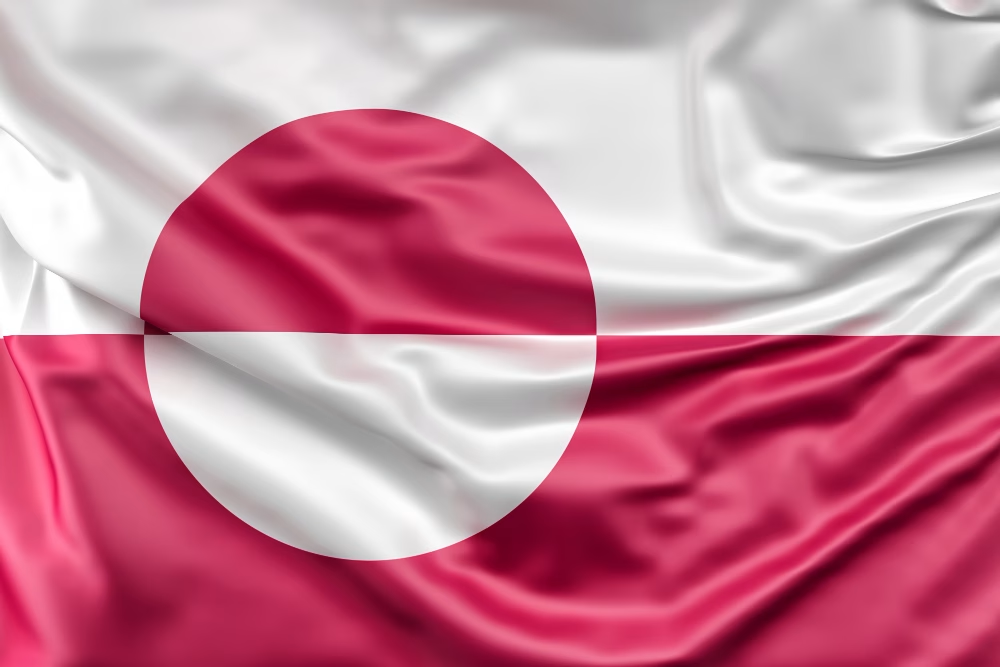Japan is an East Asian economic powerhouse with nearly 125 million people and a long-standing affinity for games of chance. From pachinko parlors to horse racing, the country blends tradition with modern entertainment. That popularity naturally draws iGaming operators, affiliates, and investors who ask a simple question: is it viable to start an online casino in Japan in 2025?
Short answer: Japan’s online casino market is large in demand but tightly restricted in law. If you want exposure to Japan, you need to understand the regulatory reality, player behavior, payments, and how integrated resort (IR) casinos may change the landscape—while staying on the right side of compliance.
Market outlook: big demand, tight rules
Japan’s economy ranks among the world’s largest, and its citizens are known for their enthusiasm for gaming and betting. IMARC Group estimates the Japan online gambling market at roughly $4.5 billion in 2025, projected to reach about $9.44 billion by 2030. Given that online casino and private online sports betting are not locally licensed, those figures reflect offshore activity and grey-market participation rather than a regulated channel. In other words, demand exists—supply, legally speaking, does not.
Pachinko is the standout example of Japan’s appetite for games of chance. Often described as a cross between pinball and slot machines, pachinko pays out prizes (e.g., snacks, cigarettes, small items) that can be exchanged for cash nearby, keeping parlors technically within the law. Industry turnover is frequently cited in the range of $170–200 billion annually; however, that represents handle (the amount played), not operators’ net gaming revenue. The pachinko experience—high sensory stimulation, fast pacing, and immersive audio-visuals—has shaped user expectations for digital casino UX in Japan.
 Legal status in 2025: what’s allowed—and what isn’t
Legal status in 2025: what’s allowed—and what isn’t
Japan’s Criminal Code generally prohibits gambling. There are narrowly defined “public sports” and lottery exceptions run by government or semi-government bodies:
- Legal: public lotteries; betting on horse racing (JRA/NAR), bicycle racing (keirin), motorboat racing (kyotei), and motorcycle racing (auto race).
- Not legal: privately operated online casinos and online sportsbooks targeting Japanese residents.
Japan’s long process toward land-based casinos continues under the IR (integrated resort) model. The Diet passed the IR Promotion Act (2016) and the IR Implementation Act (2018), creating a path for large-scale resorts that include casinos, hotels, and convention centers. The first project, the Osaka IR led by MGM Resorts and Orix, received national approval; opening is targeted around 2030.
Key IR policy points include:
- Entry controls for residents: a 6,000 yen admission fee, frequency limits (for example, three visits per seven days and additional monthly caps).
- Casino floor cap: the casino area may occupy no more than 3% of the total IR floor space.
- Gaming tax: widely cited at 30% of gross gaming revenue (GGR), shared between national and prefectural governments.
- Oversight: the Japan Casino Regulatory Commission (JCRC) as the primary supervisory authority, with strict AML/KYC and responsible gambling controls.
Update on online enforcement and advertising In mid-2025, the Diet passed a new statute tightening the online environment: public communications stressed that online gambling is illegal in Japan, banned advertising aimed at Japanese residents, and clarified that operating online gambling services—whether based in Japan or offshore—is prohibited. The law comes into force in September 2025. While details of implementation and enforcement will evolve, the direction is clear: marketing, facilitating, and operating online casino offers to Japan is high risk.
Enforcement against illegal gambling organizers can carry prison terms of up to five years; players can face penalties too, though enforcement against individuals historically has been more limited. Local reports showed a rise in cases in 2024, signaling more active policing of the grey market.
Licensing reality: there is no online casino license for Japan
There is currently no domestic online casino license for operators to apply for, and offshore licenses (e.g., MGA, Isle of Man, Curaçao, Kahnawà:ke) do not confer legality within Japan. That means any B2C operator targeting Japanese residents without a specific Japanese authorization operates at legal risk. Affiliates and media partners should also consider the new advertising prohibitions and platform policies, as search and social channels increasingly clamp down on unauthorized iGaming promotion.
What Japanese players like: UX, content, and culture
Understanding player expectations is essential for product-market fit, even if your near-term strategy is content, data, or B2B exposure rather than B2C.
- Pachinko-informed UX. Japanese users respond well to vibrant, high-energy visuals and distinctive soundscapes. Western minimalist design can read as under-stimulating. For casino, that often translates into dynamic slot lobbies, crisp animation, and satisfying win feedback loops.
- Anime and manga aesthetics. IP-inspired or anime-like characters, mascots, and narratives resonate across slots, instant games, and even live-dealer environments adapted with themed studios.
- Product mix. RNG slots with quick spins, feature-rich mechanics, and crash/instant games have found traction among younger audiences; classic table games remain staples; live casino draws engagement when localized for language and etiquette.
- Localization. Japanese-language support, finely tuned typography, respectful copy, and culturally aware VIP programs are table stakes for serious brands.
- Mobile-first. Japan’s players are highly mobile; weight, speed, and UI clarity on mid-tier devices matter.
Sourcing content efficiently Building a competitive game portfolio via direct contracts is time-consuming and costly in any market—Japan included. Aggregation platforms streamline access to hundreds of certified titles through a single integration, manage updates, and reduce vendor management overhead. For B2B suppliers, certification status in major jurisdictions, RTP disclosure, and game volatility transparency are critical selling points to international operators that serve Japanese-speaking players from elsewhere.
What sports do bettors follow?
Beyond public sports betting (JRA/NAR and other sanctioned events), Japanese fans have broad interests:
- Traditional and public events: horse racing is the top betting event; keirin and kyotei have loyal followings; sumo attracts massive viewership, though regulated betting is limited.
- Team sports: soccer (J.League and international), baseball (NPB and MLB), and basketball draw strong engagement.
- Esports: a growing audience follows global titles; regulated betting opportunities remain constrained domestically.
 Payments: cards, e-wallets, bank transfers, and crypto
Payments: cards, e-wallets, bank transfers, and crypto
Frictionless payments drive conversion and retention. In Japan, card rails (Visa, Mastercard) are widely held but can be unreliable for high-risk MCCs, especially after ad restrictions. Many users turn to:
- E-wallets and APMs: international wallets (e.g., Neteller, Skrill), bank transfers, and locally popular options such as convenience-store (konbini) cash payments for general ecommerce.
- Prepaid vouchers: used as an intermediate step where available.
- Crypto: Japan was an early mover in regulating virtual asset service providers (VASPs) under the Financial Services Agency (FSA). Licensed exchanges support JPY pairs, and millions of Japanese hold crypto. BTC and ETH dominate; XRP is notably popular; Monacoin remains a local curiosity.
For operators and PSPs serving international users, payment aggregation platforms can consolidate 100+ methods under one integration, reduce reconciliation complexity, and provide smart routing. Note that FATF-aligned AML controls, sanctions screening, and the Travel Rule apply to VASPs; marketing “crypto casinos” to Japan still falls under the prohibition on offering/advertising illegal gambling.
Compliance and responsible gambling
Japan’s Ministry of Health, Labour and Welfare has reported lifetime problem gambling prevalence around 3.6%—higher than in many fully regulated markets. Treatment resources exist nationwide, and IR policy incorporates strong RG features: entry fees for residents, visit limits, exclusion mechanisms, and data-driven monitoring. Any stakeholder building products or content for Japanese users should align with RG good practice: clear risk education, spending and time limits, and rapid self-exclusion pathways.
How Japan compares to other Asian markets
Below is a concise comparison of three key jurisdictions for companies weighing an Asia strategy in 2025.
| Category | Japan | Philippines | India |
|---|---|---|---|
| Online casino legal status | Prohibited for private operators; no local B2C licence | Regulated for certain domestic verticals; offshore-facing market historically licensed but under tighter scrutiny | Varies by state; skill gaming permitted in some states, chance-based gaming widely prohibited |
| Primary regulator | Japan Casino Regulatory Commission (land-based IRs); public sports bodies (JRA/NAR, etc.) | PAGCOR (national regulator and operator); reforms ongoing | No single federal regulator; state authorities and courts define legality |
| Local B2C licensing (online casino) | Not available | Domestic e-Games (retail/online hybrids) under PAGCOR; offshore regimes being restructured | Limited; some states license online skill games; chance gaming typically not licensed |
| Typical gaming tax (reference) | IR casinos: ~30% GGR (land-based) | Varies by product; multiple taxes and fees under PAGCOR frameworks | GST and other taxes depend on state and product; 28% tax on online real-money games in some contexts |
| Market notes (2025) | IRs under development; ad ban and illegal online crackdown | Regulatory clean-up of offshore sector; strong BPO/iGaming vendor ecosystem | Large addressable population; patchwork legality; rapid growth in skill/RMG apps |
How to position your iGaming business for Japan—legally
If you are an operator:
- Do not target Japanese residents with online casino or private sportsbook offers. The legal, financial, and reputational risks have increased with the 2025 advertising prohibition.
- If Japan is strategic, consider a long-term brand play via IR partnerships, hospitality, or entertainment tie-ins as the Osaka IR progresses, and monitor future regulatory consultations.
If you are a B2B supplier:
- Focus on international operators licensed elsewhere that serve Japanese-speaking users while maintaining your own compliance footprint. Emphasize localization, RG tooling, fraud controls, and payments optionality.
If you are an affiliate or media publisher:
- Reassess Japan-facing content for advertising compliance. Educational, news, and RG-focused content may be acceptable; direct promotion of offshore gambling to residents is risky under the 2025 rules.
Technology and operations: what best-in-class looks like
Launching or supporting a casino product for Japanese-speaking users from outside Japan still demands Tier-1 standards:
- Platform: modular PAM, high-availability infrastructure, multi-language CMS, granular bonus engine, in-depth risk and AML tooling.
- Data and privacy: Japan’s Act on the Protection of Personal Information (APPI) has cross-border transfer requirements; align with APPI, GDPR, and your licensing regime.
- Fraud and security: device fingerprinting, bot mitigation, velocity rules, and 2FA are essential given high mobile usage.
- Content pipeline: agile game release management; RTP disclosure and game fairness certificates; A/B testing for UX and monetization.
- Payments orchestration: intelligent routing, cascading fallbacks, and localized failure messaging to preserve conversion.
 Pros and cons of targeting Japan’s iGaming demand in 2025
Pros and cons of targeting Japan’s iGaming demand in 2025
Pros
- Large, well-capitalized audience with strong affinity for gaming and compelling LTV metrics when localized well.
- Cultural familiarity with chance-based entertainment (pachinko) and broad sports fandom.
- IR development (e.g., Osaka) could catalyze tourism, hospitality, and future adjacent opportunities.
Cons
- Online casinos and private online sportsbooks are illegal; 2025 law tightens advertising and increases enforcement exposure.
- Banking and card declines for high-risk MCCs; platform policies on major ad networks restrict user acquisition.
- Complex compliance environment: APPI for data, FSA rules for VASPs, AML obligations, and potential criminal penalties for illegal operation.
Practical takeaways
Japan’s iGaming opportunity is real in terms of consumer appetite, but legal entry points for online casinos are closed in 2025. Instead of forcing a B2C model into an illegal channel, consider:
- B2B routes: localization services, content supply, risk and RG tech, and payments orchestration for international operators.
- Brand groundwork around the IR ecosystem: hospitality, entertainment, and partnerships that don’t rely on online gambling.
- Regional diversification: regulated alternatives in Asia (e.g., the Philippines for certain models) while maintaining high compliance standards.
FAQ
Is it legal to run an online casino in Japan in 2025?
No. Private online casinos and online sportsbooks are illegal in Japan. There is no domestic online licence, and the 2025 legislation further restricts advertising and clarifies that services offered from offshore to Japanese residents are prohibited.
Can foreigners start an online gambling business in Japan?
Not an online one. Japan does not issue online casino licences. Foreign participation is possible only within approved land-based integrated resort projects and related hospitality/entertainment ventures.
What types of online gambling are allowed in Japan?
Publicly run products: government lotteries and betting on designated public sports (horse, bicycle, motorboat, motorcycle racing). Privately operated online casino and sportsbook products are not permitted.
Do offshore licences (e.g., MGA, Curaçao) make it legal to target Japan?
No. An offshore licence does not legalize activity in Japan. Marketing and offering services to Japanese residents remains prohibited.
Will integrated resort casinos include online gambling?
Current policy focuses on land-based resort operations with strict controls. There is no framework that legalizes private online casino or sportsbook offerings to residents.
Are players in Japan prosecuted for betting online?
Organizers face the highest risk, but players can be penalized under Japanese law. Enforcement against individuals has historically been limited but is reportedly increasing. The 2025 changes also raise the stakes for advertisers and facilitators.
Which payment methods do Japanese users prefer for gaming?
Cards, bank transfers, and e-wallets are common in general ecommerce, but acceptance for gambling is inconsistent. Some users rely on e-wallets, prepaid vouchers, or crypto via licensed exchanges. Regardless, offering or facilitating illegal online gambling to Japan is prohibited.
Final word
Japan’s iGaming demand is significant, yet the legal channel for online casino remains closed in 2025, and advertising restrictions have tightened. That combination creates a classic paradox: a lucrative audience you shouldn’t target with unauthorized products. The pragmatic path is to invest in compliant B2B capabilities, watch the IR rollout in Osaka, and diversify into regulated Asian alternatives while maintaining Japan-ready localization and RG standards for the day the rules change.




